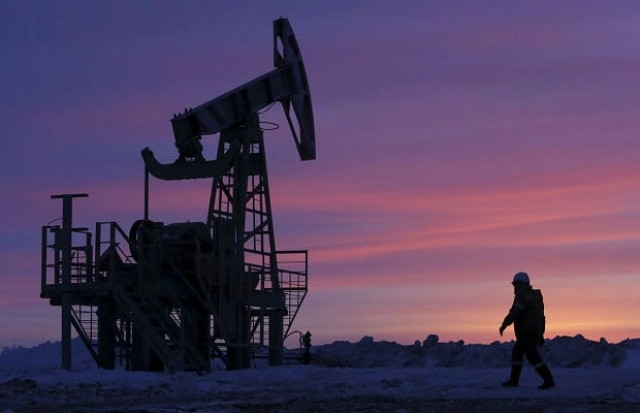Govt mulls new levy on oil products
Plans to impose infrastructure levy of Re1 per litre to generate Rs354b, build reserves

The government is planning to impose infrastructure development levy (IDL) of Re1 per litre on petroleum products to generate around Rs354 billion and build strategic reserves of around 2 million tons. Sources told The Express Tribune that the government wanted to build the strategic petroleum reserves to cover 30 days of requirement.
It would require creating a storage for around 2 million tons with project cost of Rs354 billion, they noted. In that regard, the Petroleum Division proposed the government to impose an IDL of Re1 per litre on diesel and petrol prices for generating revenue for the project.
Based on the current sales volume, it would result in annual revenue of Rs20-22 billion. In the first phase, the government plans to build the strategic petroleum reserves to cover 10 days of needs, which may be enhanced later to 30 days.
Earlier, a government imposed the petroleum development levy (PDL) to build the strategic reserves. However, the then finance ministry spent all the money on “current expenditures”. The Supreme Court took notice of the misuse.
Later, the government changed its name to petroleum levy to justify its spending on current expenditures. In fiscal year 2020-21, the country imported a total of 17.4 million tons of fuel, which included 8.2 million tons of crude oil, 3.2 million tons of diesel and 6 million tons of petrol.
According to the Petroleum Division, Pakistan is an energy-deficient country, importing around 85% of its fuel requirement. At present, the oil marketing companies (OMCs) are obligated to maintain stocks equivalent to the demand for 20 days on a commercial requirement basis.
READ IEA to hold emergency meeting to tackle soaring oil prices
Diesel and petrol are the major products which contribute around 80% of the total requirement in the country. The existing storage capacity for petroleum products and crude oil – available with OMCs, refineries and pipeline operators – is around 2.5 and 0.9 million tons respectively.
Pakistan is heavily dependent on oil imports but has no emergency plans or strategic reserves to handle any oil supply disruptions. Recently, the federal cabinet stressed the need to construct strategic storages of refined petroleum products and crude oil. Moreover, Lahore High Court had also emphasised the need for ensuring strategic storages in all eventualities.
In compliance with the cabinet’s decision, the Petroleum Division constituted a working group, composed of highlevel representatives from the oil industry, who have prepared a concept paper on the development of strategic petroleum reserves.
This concept paper says that the strategic reserves are exclusively owned and managed by the governments as per international best practices. Therefore, a separate stateowned entity under the administrative control of the federal government is required for this purpose. The size, location and type of the strategic petroleum reserves should only be finalised after conducting a detailed bankable study.
Moreover, the provisions of Section 21 (2) (e) of the Ogra Ordinance 2002 provide powers to the federal government for issuing policy guidelines to the Oil and Gas Regulatory Authority – being the regulator in field – in relation to the “establishment and maintenance of the strategic petroleum storage”.


















COMMENTS
Comments are moderated and generally will be posted if they are on-topic and not abusive.
For more information, please see our Comments FAQ